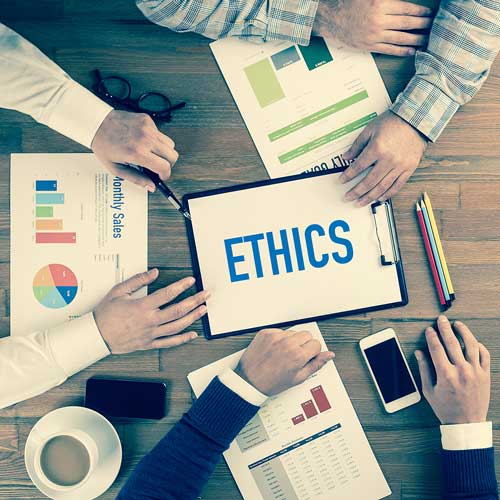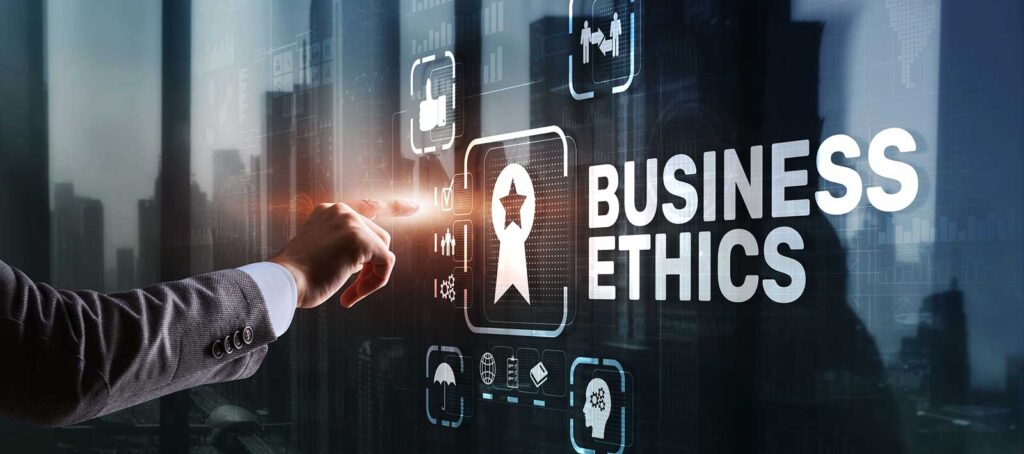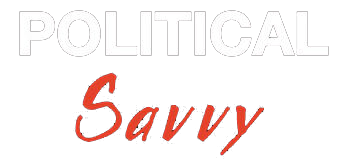Ethics Is Power ©
Developing an Ethical Corporate Culture in the Workplace
Ethics Is Power©. This finding came out of over a decade of studies and workshops across multiple industries around the world. My own experience has validated it for me personally as a line manager, executive, and Board Member.
ETHICS IS POWER© A baker’s dozen of related components acting together to significantly increase personal, team, and organizational power and influence. *

Ethics Is Power because for people who operate ethically their word is their bond. Time consuming and costly written agreements aren’t needed.
Ethics Is Power because for people who operate ethically, there are no hidden agendas to worry about.
Ethics Is Power because you don’t have to watch your back.
Ethics is Power because it fosters the development of one of the most crucial success elements for organizations – trust.
Ethics is Power because those known to operate ethically are preferred team members revered as even equal to and sometimes greater than technical competence.
Ethics is Power because operating ethically increases one’s ‘Rep’ or reputation in the firm, a key to the amount of informal influence and power they possess in the eyes of others.
Ethics is Power because ethical people are more resistant to influence attempts from ‘political Sharks’ who use unethical means. The power of those acting unethically is thus dampened and the overall ethical influence is enhanced by comparison.
Ethics is Power because ethics means doing the right thing which often results in doing the right things for the task. Doing things right increases the chances of success and success usually increases power. A bit convoluted but true nonetheless.
Ethics is Power because bosses who believe their subordinates are ethical worry less that they will be negatively surprised by something wrong in their unit. They know the person will tell them if something is going wrong that could embarrass the boss in the organization. Often the result is a boss who is willing to delegate more responsibility to an ethical person, other factors being equal. This can give the ethical person more responsibility and influence.
Ethics is Power because ethical people are less likely to spend precious energy in internal turf battles, both personally and departmentally. This can free up an enormous amount of energy for task accomplishment which versus internal friction. It thus empowers teams and organizations to better serve customers and operate more efficiently. The result can be greater power and influence in the market place.
Ethics is Power because operating ethically can increase personal self esteem. Those with high self esteem often have high confidence which can make them more powerful and influential with others than those with low self esteem.
Ethics is Power because those higher in the organization are more likely to listen to someone they know to be ethical versus someone who they believe are trying to advance personal versus organizational agendas.
Ethics is Power because ethical environments are more likely to bring out peoples’ personal best instead of their personal worst – often the result of unethical environments. When ordinary people are functioning together at their personal best they are often capable of extraordinary performance thus increasing personal and organizational impact and power.
* The Securities and Exchange Commission (SEC) has requested the use of this baker’s dozen for their own website.
When all these related and somewhat overlapping components combine synergistically, they increase the power and influence of individuals, teams, and organizations. Also, most people know that ethical behavior can empower their personal lives as well.
However, it is easy to fall into one or more of the misunderstandings of how ‘ethics is power©’. Overcoming the alternative views for the reasons to act ethically can be a difficult task. Then, knowing how to make the most of ethical behavior requires leadership that has the view of ethics as more than the right thing to do.
For people like the politically savvy, the ‘power of ethics’ is obvious as it is for almost everyone who has experienced the effects of ethical behavior from an increased influence perspective. We have found most people intuitively understand this experience. Yet they often don’t believe it is realistic in what appears to be cutthroat competitive business environments. Some others just don’t know how to tap into it.
How to tap into the full potential of ‘ethics is power’ is a key part of the political savvy aspect of leadership. The book, based on decades of studies, tries to act as a guide to make the most of ‘ethics is power’.
Our studies show that almost everyone has this basic ability, but few use it. Far too many ethical people refuse to enter and be proactive in their ability to influence others. They, all too often, are blocked by the strong negative stereotype of organizational politics as manipulative and involving self serving, unethical behavior. As a result they can do the right thing in their local office situation and gain some of the influence benefits of ‘ethics is power’. Yet they often lose out on its greater potential.
The political savvy do not believe in the negative stereotype of organization politics. They know organization politics is a two edged sword. It can be used ethically to cut through bureaucratic red tape and outdated processes, or it can be used negatively to cut down others’ innovative ideas or colleagues standing in the way of a desired promotion.
The Political Savvy view organization politics in a more balanced way. They see it as how human nature plays out in hierarchical settings. As Harry Truman said “Politics is the art of getting things done” and Churchill said, “When you mix people and power, you get politics.” Hierarchies are full of power. Organization politics is how power and interests play out in the organization. One thing is certain, they will play out.
The definition used in the book for political savvy is ‘ethically building a critical mass of support for an idea you care about.’ The political savvy know how to accelerate the trust building process. They use their word as their bond often and keep it.
Working openly for the best interests of the organization, they don’t have hidden agendas and can thus play above board. The political savvy use ‘ethics is power’ to go beyond their local situation to influence up and outward across the organization. As a result, their credibility and ethical influence networks are much larger that those of most others.
The political savvy have a much greater chance of making the kind of impact and contribution they desire and to attain career success and satisfaction. The starting point for these outcomes is understanding that ‘ethics is power’.

Recent scandals resulting in the crash of corporations, the non accountability in the accounting industry – including one huge firm whose balance sheet and very existence was completely zeroed out – the lack of ethical direction from boards of directors, the missing ethical wall on Wall Street firms, and now the non insured behavior of the insurance industry have cost thousands of people their jobs and have depleted millions of peoples’ retirement funds whose 401k’s held stock in all these firms and industries.
How could every part of the supposed checks and balances in business have failed us all?
I believe the answer lies in part to greed, in part to fear, in part to just plain following along with the crowd, and in part because even the smartest people really don’t get how operating ethically gives you power.
For most people, ethics is a ‘should.’ It’s like a Sunday School issue. Yes, we should behave this way. It’s a felt obligation. It is in almost every organization’s value statements.
I learned long ago that an organization’s value statement is only a list. The true test of their in-practice value system is watching what happens when two values collide.
When profit and ethics are in conflict which wins out? Johnson & Johnson seemed to get this right years ago when Tylenol was tampered with leaving several people ill.
They didn’t listen to their lawyers who were trying to prevent lawsuits, they admitted there was a problem and pulled all the product off the shelves.
Another reason is that ethics is seen as a nice – but not a critical thing – to do. It looks good to say it, but it is harder to do it. Competition is fierce. To compete one has to cut costs which often leads to cutting corners.
Political ‘sharks’ put self interest ahead of the organization’s interests. For them, as long as it’s legal, it is ethical enough.
They often do not get the difference between operating within the law and operating ethically. As a result, ethics suffers and the firm hires better and more expensive lawyers which actually increases overall costs to the organization.
I have been in more organizational discussions than I would like to admit where operating ethically was treated as a cost-benefit analysis problem.
If you raise your hand and say ‘wait a minute, doing the right thing is not about cost versus benefits, it is about doing the right thing,’ you get looked at as a ‘goody two shoes’ rather than as a serious business person.
A third reason is that while operating ethically can make one a good person in the eyes of others, goodness is not seen as a basis of power and influence. There is some evidence that this is even true among those who believe in operating ethically.
Operating ethically is seen as a ‘softball’ approach in the ‘hardball’ world of business.
This brings up a related reason having to do with pride. There are some who wear their ethical standards defiantly as a badge of honor even if it means they are seen as less effective than others.
Here, pride cometh before the fall or rather pride cometh before loss of effectiveness. ‘I may not have had as much influence and impact as others, but I was ethical, so there.’
These reasons and others blind us to what is obvious in hindsight: operating ethically is not just a Sunday School should, not just a nice thing to do when things aren’t so competitive, not just being legal, not just to be overruled subject to cost benefit analyses, not just a badge of honor for the less effective, but ethics is truly a way to increase power and influence for the individual and organization alike.
Ethical Culture
“How do we build a strong ethical base for our culture?”— Corporate Executive
As competition and change builds at a faster pace, the temptation to cut corners will only increase. Recent headlines indicate on the surface what is likely going on undetected in other corporations.
Yet it is the ethical nature of a business and the trust it builds with key stakeholders that will play a major role in its long term success. One of the breakthrough findings of the studies was the emergence of the phrase: “Ethics is Power”
Again, for most people operating ethically is a ‘shouldism’, a type of obligation. What clearly should emerge from our results was that those identified as politically savvy were seen to operate ethically; resulting in much higher influence throughout the organization than others.
The political savvy advantage provides a clear grounding for establishing an ethical basis for a culture. Each person has their own personal best. Ethical based cultures bring out the personal best in most people. The result is an increased impact of satisfaction and performance.
